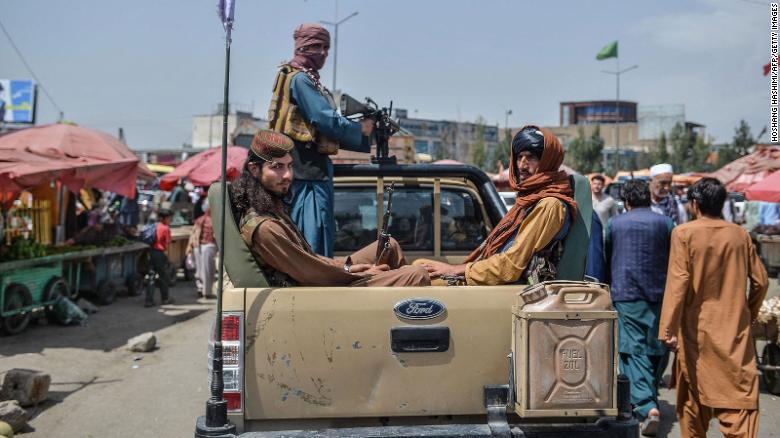The Taliban again took control of Afghanistan. As in 1996, the group’s members seized power in a country that has seen scenes of chaos in recent days.
On this occasion, the Taliban advanced rapidly. Although the Afghan security forces were well funded and well equipped, they put up little resistance when Taliban militants took over much of the country following the withdrawal of US troops in early July.
On Sunday August 15, former Afghan President Ashraf Ghani fled the country and left the presidential palace. Then the Taliban fighters took control of Kabul and the country in general.
During the Taliban rule between 1996 and 2001, brutal flogging, amputations and public executions were common. The women were largely confined to their homes; the death penalty was applied for crimes such as female adultery, homosexuality and the rejection of Islam.
Now militants have sought to present themselves as more progressive, inclusive and moderate than the group that terrorized communities two decades ago, claiming that they will not seek retaliation against their political enemies and that women will play an important role in society and they will have access to education.
Yet each of these promises has been conditioned by a reminder of the Taliban’s “core values”: a strict interpretation of Sharia law, which experts say has not been drastically changed in 20 years.
What does “sharia” mean?
The word “sharia” means “the path” or “a path that leads to water”. It refers to a set of principles that govern the moral and religious life of Muslims.
“Sharia represents how practicing Muslims can better lead their daily lives in accordance with divine guidance,” according to Teaching Tolerance, a project of the Southern Poverty Law Center.
What does the sharia contain?
Sharia is based on the holy book of Islam, the Qur’an, and on the life of the Prophet Muhammad. Most of it concerns the individual’s faith and how to practice Islam, along with guidance on when to pray and how to fast during Ramadan.
Sharia law, according to Muslims, includes “the principle of treating other people fairly, of making sure that the financial system treats people fairly, and most importantly, the basic principles of Islamic destiny,” said Harvard Law Professor Noah Feldman.
It covers things like marriage, divorce, inheritance, and criminal penalties.
Is it one law or many?
While the Qur’an and the life of the prophet make up the sharia, its interpretation is called “fikh” and is carried out through Muslim teaching. Most practicing Muslims follow sharia, but it is not practiced uniformly.
Its application varies greatly in the Muslim world. A Pew survey of the religious landscape found that 57% of American Muslims say there is more than one way to interpret the teachings of Islam.
Terrorist groups like ISIS are trying to implement a brutal version of sharia, but millions of Muslims are guided by a much more moderate interpretation.
Where it is practiced?
Sharia has been applied to varying degrees and with great diversity in practice, both by individual Muslims and by predominantly Muslim countries. Although both Saudi Arabia and Iran claim to be bound by Sharia, they differ widely in how they apply their laws.
When asked how they want the laws of their countries made, many Muslims are comfortable with the sharia governing family law, but do not want severe corporal punishment.
What do American Muslims want?
Most Muslims enjoy the religious freedom they need to practice their faith, which is guaranteed by the US Constitution.
“I am not worried about the fact that they want to make it the law that governs the country I live in. I am very happy to live in the United States under the Constitution,” said retired Lt. Col. Shareda Hosein in an interview with Citizen Free Press.
“And for me the Constitution allows my freedom of religion, which is the most important thing for me and for other Muslims.”

